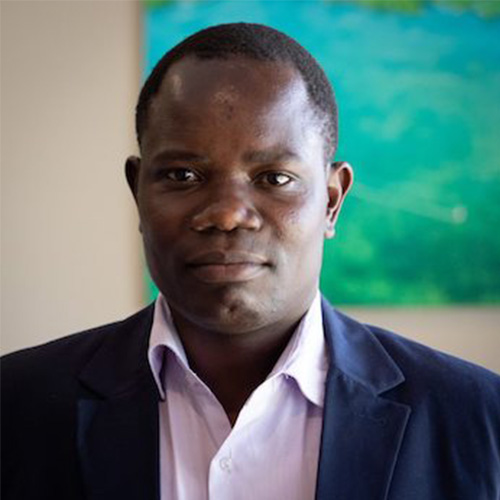
George Otieno
Country (Nationality)
Kenya
Grantee Title
Strengthening seasonal forecast products as potent tools for early warning information for key economic sectors of the GHA region under the anticipated 1.5/2.0 degrees warming.
Grantee Description
Otieno is a climate research scientist, with the Climate Prediction and Diagnostics section of IGAD Climate Prediction and Applications Centre (ICPAC), Nairobi, Kenya. His main role involves the generation of climate information at daily-seasonal timescales for decision making process for weather sensitive sectors of the Greater Horn of Africa (GHA). Otieno completed his PhD at the University of Nairobi in 2018 and his research work was titled “Optimized Cumulus Parameterization in WRF Model for Simulation of Extreme Rainfall over East Africa”. The PhD programme was jointly funded by ICPAC and Korea Meteorological Administration (KMA).
Otieno`s research interest revolves around translation of seasonal climate information for decision making processes at sector levels within the GHA region. He is part of capacity building team at ICPAC that trains meteorologists and other climate users of the National Meteorological and Hydrological Services (NMHS). He is also focal point person for CORDEX East Africa that supports the development and understanding of climate projection science and its impacts. Otieno has published many articles in peer reviewed journals; and partly mentors young career researchers from regional universities and NMHS within the GHA region.
CR4D project scope
The research aims at strengthening seasonal forecast products as potent tools for early warning information for key economic sectors of the GHA region under the anticipated 1.5/2.0 degrees warming. It comes at an appropriate time when the region is faced by frequent climatic variability and change associated with extreme climate events like droughts and floods that hampers the region’s economic stability. The research is an impetus towards value addition in the existing seasonal forecast products and the re-alignment of the same to a much-anticipated climate warming over Africa.
Since the work is a nexus between users and climate science, the collaboration between the former and the latter from main sectors including Agriculture/Food security, Water and Energy and Health will be very fundamental. This work is expected to culminate into several findings including; establishment of the impact of ICPAC seasonal forecasts skill to the sectors for the past 20 years; developed strategies and policies in line with the 1.5/2.0 degree warming that contribute to the national determined contributions (NDCs) of the piloted countries Uganda, Tanzania and Ethiopia.
